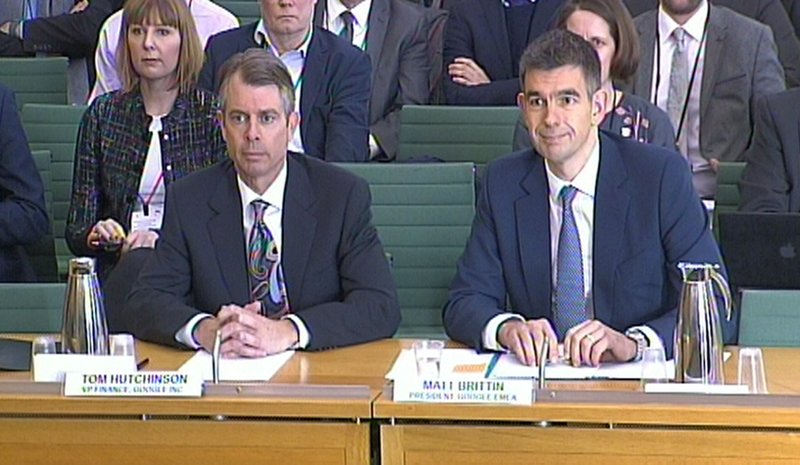30-year mortgage rate drops to 3.65%
WASHINGTON -- Average long-term U.S. mortgage rates fell this week for the sixth-straight week as markets around the globe continued the whipsaw trading that has marked this year so far.
Mortgage buyer Freddie Mac said Thursday that the average rate on a 30-year fixed-rate mortgage dropped to 3.65 percent this week, down from 3.72 percent last week and close to its low point last year of 3.59 percent.
The average rate on a 15-year fixed-rate mortgage eased to 2.95 percent from 3.01 percent last week.
Mortgage rates have continued to fall despite the Federal Reserve's decision in December to raise the short-term rate it controls for the first time since 2006.
To calculate average mortgage rates, Freddie Mac, the Federal Home Loan Mortgage Corp., surveys lenders across the country at the beginning of each week. The average doesn't include extra fees, known as points, which most borrowers must pay to get the lowest rates. One point equals 1 percent of the loan amount.
The average fee for a 30-year mortgage declined to 0.5 point from 0.6 point last week. The fee for a 15-year loan was unchanged at 0.5 point.
-- The Associated Press
PepsiCo's revenue up on lineup, pricing
NEW YORK -- PepsiCo said revenue for its North American snacks and drinks units rose in the fourth quarter, boosted by pricing.
The maker of Frito-Lay chips and Tropicana juice has been retooling its product lineup and rethinking pricing to fetch more money from shoppers. The strategies include the introduction of new lines of Gatorade and Mountain Dew Dewshine, which comes in glass bottles.
The focus on finding novel ways to earn more money comes as major packaged food and beverage makers face slowing growth in saturated markets like the United States.
Coke and Pepsi also are slashing costs and investing more in marketing, which they say helps justify higher prices and drives sales.
For the quarter ended Dec. 26, PepsiCo said its profit rose 31 percent to $1.72 billion, helped by cost-cutting. Earnings, adjusted for one-time gains and costs, came to $1.06 per share. That matched analyst expectations.
Total revenue fell 7 percent to $18.59 billion, but it topped the $18.52 billion analysts expected, according to Zacks Investment research.
Pepsi shares fell 72 cents to close Thursday at $96.90. Its shares have fallen more than 3 percent in the past year.
-- The Associated Press
Coke sales grow as packaging shrinks
Earlier this week, Coca-Cola reported its latest earnings with a big smile, boasting that global soda volume sales rose in the last three months of 2015.
The news suggests things might not be as bad as they seem in the soda universe -- even in the United States, the largest market in the world, where Coca-Cola has seen its sales plummet as carbonated drinks lose favor.
But it's also a testament to the success of a clever little trick the soda industry has adopted in tough times: selling its product in smaller packages.
For decades, soda makers nudged people to drink more with ever-larger cans, bottles, and cups. That strategy, however, has flailed in recent years, as the narrative about the harms of drinking soda has intensified. So they have opted to do the opposite, shipping carbonated drinks out in smaller servings in hopes of making soda sexy again.
For Coca-Cola, it means a more profitable product, since packaging is such a significant contributor to price. "Certainly, they make more money per ounce this way," said David Just, a professor of behavioral economics at Cornell University who studies consumer food choices.
Many other big food brands, including Kraft, General Mills, and Campbell's Soup, have employed a similar strategy: shrinking packages to boost profit margins. But this is particularly important to a company like Coca-Cola, given the steady decline in soda consumption.
-- The Washington Post
Britons grill Google executive on taxes
LONDON -- A British parliamentary committee has grilled Google's president of European operations, questioning in blunt terms whether the Internet giant had paid its fair share of taxes.
The hearing Thursday came as public anger rose over a tax settlement the company made with U.K. authorities. Meg Hillier, who heads the Public Accounts Committee, captured the mood when she accused Google's Matt Brittin of having "tin ears" to the complaints about the $186 million deal for back-taxes in Britain.
Brittin insisted he understands public anger, and said Google had paid taxes at 20 percent like other companies.
But he invoked Hillier's fury when he said he didn't know his own pay package.
"You don't know what you get paid? ... Out there, taxpayers, our constituents, are very angry, they live in a different world clearly to the world you live in, if you can't even tell us what you are paid," Hillier countered.
She said it was a "PR disaster" for Google to announce its tax deal just as British people were doing their tax returns and "sweating over a little bit of bank interest and getting it in on time."
-- The Associated Press
IMF director nominated for second term
WASHINGTON -- The International Monetary Fund has nominated managing director Christine Lagarde for a second five-year term.
The IMF executive board said Thursday that Lagarde was the only candidate nominated.
In 2011, Lagarde was named the IMF's 11th managing director. She is the first woman to hold the position.
Lagarde, 60, has led the multinational lending agency through the European debt crisis and a period of global economic stagnation which she's labeled as the "New Mediocre."
Before joining the IMF, she was an international lawyer. She also has served as France's minister of trade, agriculture and finance. During the financial crisis of 2008, she led a council of European Union finance and economic ministers.
-- The Associated Press
Business on 02/12/2016
